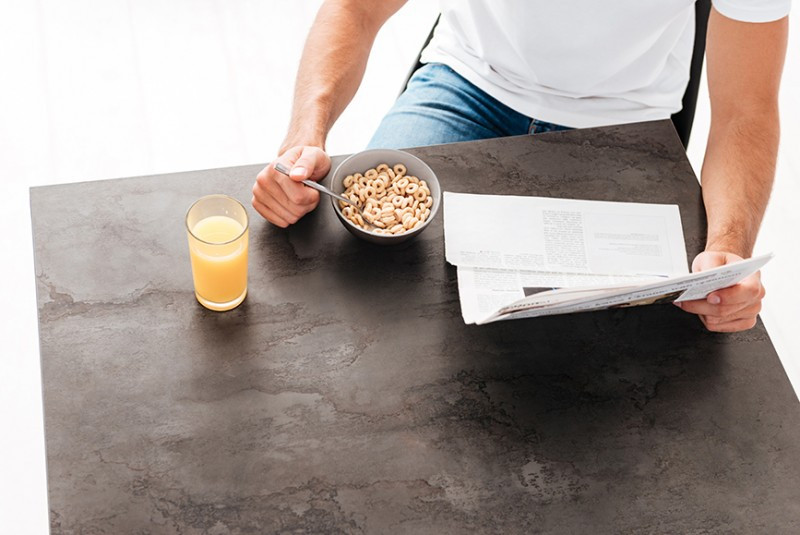For years we've been told, Eat more fiber. Sound advice, so we do precisely that, and our bodies are healthier because of it. Why question it, right? Fiber, a plant-derived carbohydrate, enhances the movement of material through our digestive system, prevents or relieves constipation, helps us maintain a healthy weight and can even lower the risk of diabetes and heart disease. Still, we wonder, what exactly is fiber and how does it accomplish all these things? It's not enough to know that fiber is good for us – we want to know the how and why as well.
Fiber Found in Two Main Types of Fiber
As defined by the National Institutes of Health, dietary fiber is found in food types that are resistant to digestive enzymes – they are the parts of plant food our bodies can't digest -- and can be found mostly in cereals, fruits and vegetables. Drilling down a bit deeper, we find that fiber, also sometimes referred to as roughage or bulk, is a natural substance contained in thousands of edible plants and it comes in two types – soluble and insoluble, per Mayo Clinic – both of them good for us, yet serving two distinct functions. Just as the name sounds, soluble fiber dissolves in water into a gelatin-like substance that can serve to slow the digestive process while helping our bodies absorb key nutrients from various foods, per fiberchoice.com. Insoluble fiber, on the other hand, aids in our passing food through the digestive system, in the process adding bulk to our bowel movements, this helping us to stay regular and steer clear of constipation.Fiber Is A Natural Laxative
That passage is made easier not only because of how the insoluble fiber bulks up the stool but also by how it softens it, acting as a natural laxative. This is why both fiber types are vital for digestion as well as our overall health. It is important to note, though, that in consuming fiber – experts recommend at least 25 grams a day for women, 38 for men – it is important we also drink plenty of water. Fiber works most effectively when it absorbs water, helping in the task of making the stool softer and bulkier. As reported by CNN several years ago, fiber, which has little to no caloric value, can also help resolve the issue of loose or watery stools, and it can have a hand in managing irritable bowel syndrome (IBS). Wait, there's more. Some forms of soluble fiber can function as prebiotics by providing healthy bacteria for our gut, further contributing to colon health. In this regard, a high-fiber diet can decrease your chance of a serious gut problem, such as diverticulitis. Fiber's ability to keep waste moving through your system helps keep waste from becoming trapped in the pouches of the colon's wall, a condition which can lead to inflammation or infection.Fiber Helps Control Blood-Sugar Levels
Also, fiber, more so the soluble type, can help regulate blood-sugar levels by slowing the rate that food empties from the stomach, therefore delaying any post-meal rise in blood sugar. This can also help with weight loss by promoting control of our hunger. Furthermore, fiber's non-caloric addition of bulk to our diet can reduce the diet's calorie density, also contributing to a long-term weight loss strategy, per cnn.com. Nuts are another food type rich in fiber, albeit they are higher in calories than other fiber foods. A good substitute for nuts, then, is popcorn (without the butter or salt, presumably), which has a lower calorie count. It will fill you up before it fills you out. It displaces other calories, says Wanda D. Filer, MD, a Pennsylvania-based family doctor, quoted at webmd.com.Healthy, Fiber-Rich Foods Summarized
Boosting your fiber intake is simple. Here is a review of the types of foods to look for:- Whole-grain products
- Fruits (i.e., apples, citrus fruits)
- Veggies (i.e., cauliflower, carrots, potatoes)
- Legumes, such as beans and peas
- Nuts and seeds (i.e., chia seeds)
- Other foods with fiber commonly added are cereal, granola bars, yogurt and ice cream. Look on the food labels for inulin or chicory root, which refer to added fibers, per mayoclinic.org.

